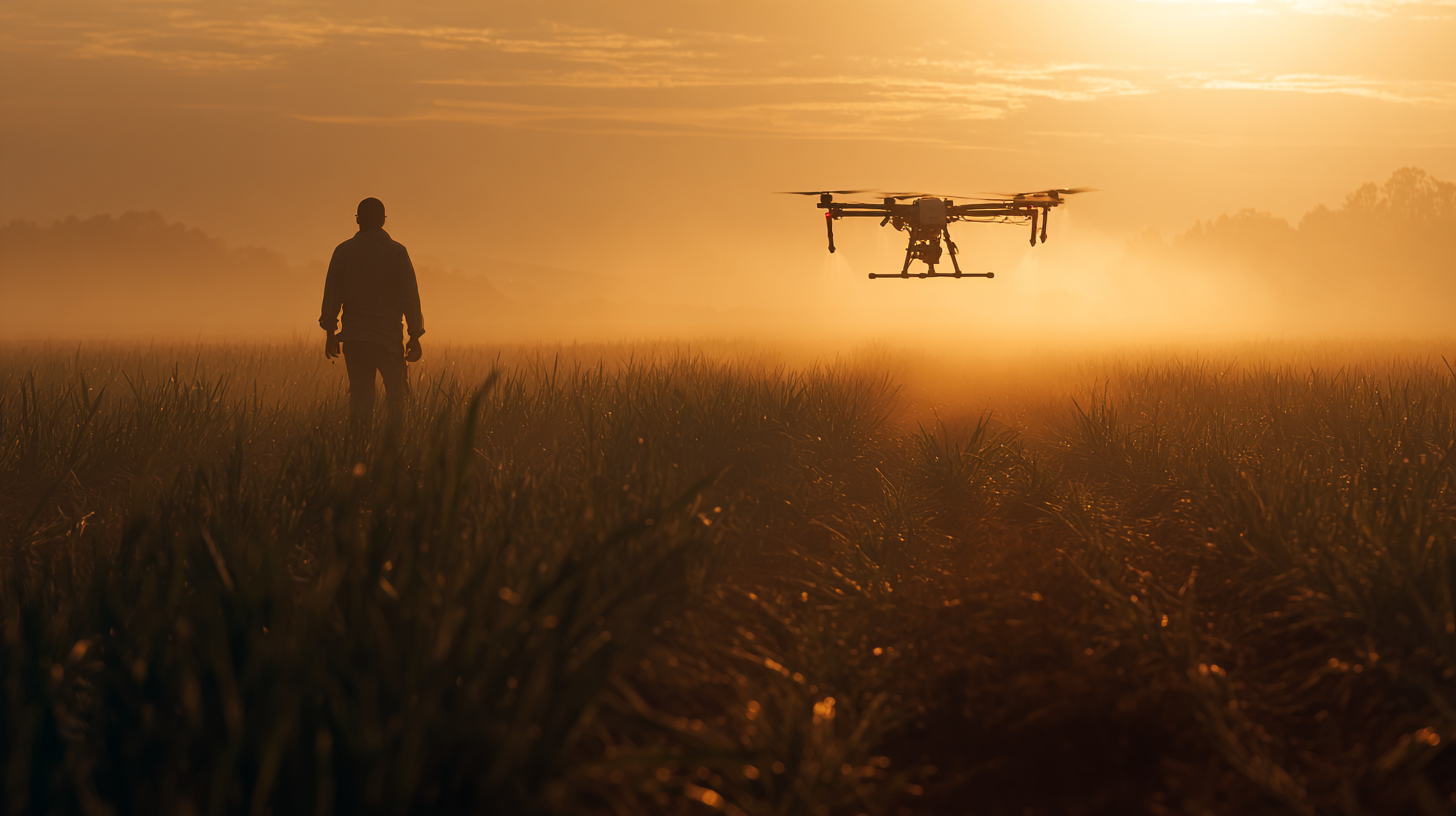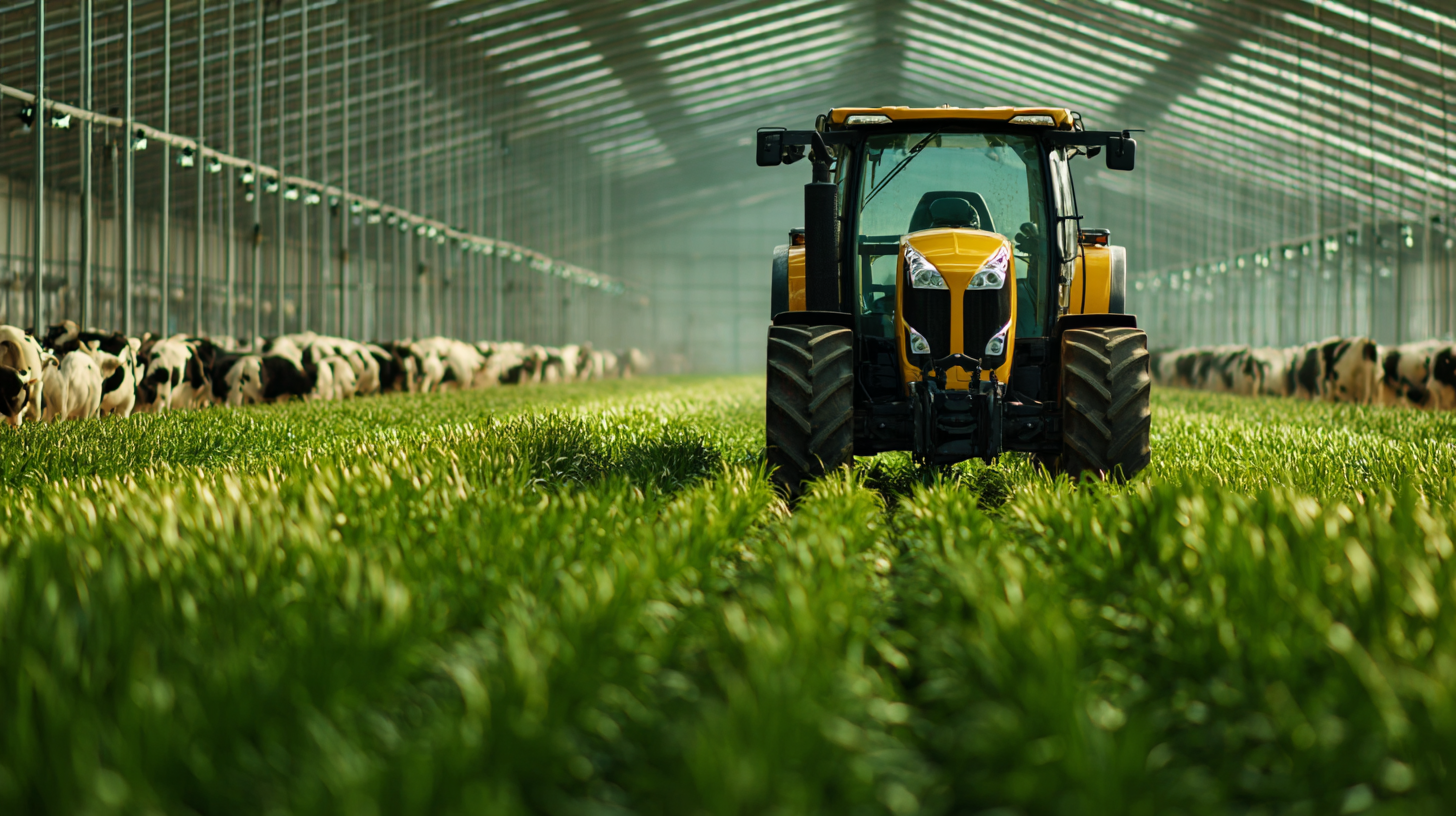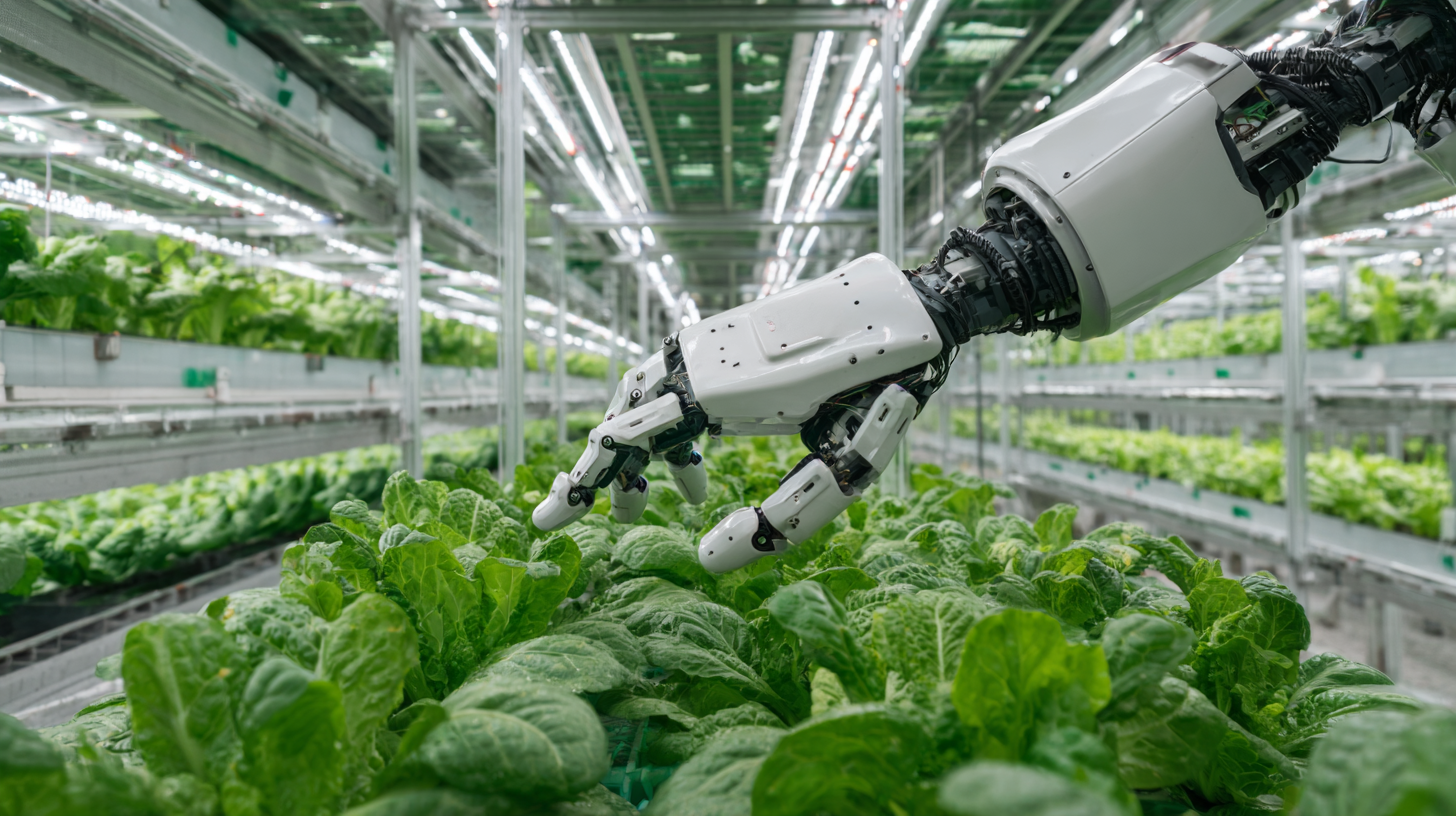In recent years, agriculture automation has emerged as a groundbreaking force in the realm of sustainable farming practices, transforming how food is produced and managed. As the global population continues to rise and environmental challenges escalate, the integration of advanced technologies in agriculture is not just a trend, but a necessity. Automation in farming encompasses a wide array of innovative tools and techniques, from smart sensors and drones to AI-driven analytics, all designed to enhance efficiency, reduce waste, and optimize yields. This shift towards more automated processes not only addresses labor shortages but also paves the way for practices that prioritize sustainability and resource conservation.

In this outline, we will explore various tips and strategies for effectively leveraging agriculture automation to revolutionize food production and ensure a resilient agricultural future.
The integration of robotics in agriculture is transforming traditional farming into a more efficient and sustainable practice. With advancements in technology, robotic systems are being deployed to handle various aspects of crop management, ranging from planting and watering to harvesting and pest control. These machines can operate with precision, minimizing waste and maximizing yield. For instance, autonomous tractors and drones equipped with sensors can monitor soil health and crop conditions in real time, allowing farmers to make data-driven decisions that enhance productivity.
Moreover, robotics in crop management significantly reduces labor costs and the physical strain on farmers. Robots can perform repetitive tasks such as weeding and harvesting with greater efficiency than human laborers, ensuring that crops are tended to in a timely manner. This is particularly crucial as the agricultural sector faces labor shortages in many regions. By streamlining these processes, agricultural automation not only improves operational efficiency but also allows farmers to focus on innovative practices that contribute to sustainability, such as regenerative agriculture and organic farming techniques. Overall, the role of robotics is pivotal in shaping a more resilient and efficient agricultural landscape.

The integration of IoT technologies is fundamentally transforming agricultural practices, paving the way for sustainable farming. By 2025, the global market for wireless industrial IoT sensors is projected to reach approximately $7.97 billion, with a compound annual growth rate (CAGR) of 13.2% anticipated, reaching around $21.5 billion by 2033. This growth is a testament to the increasing reliance on real-time data for monitoring agricultural conditions, which not only enhances productivity but also optimizes resource usage in farming.
Moreover, the adoption of temperature sensors, a critical aspect of precise agri-monitoring, has already surpassed $8.2 billion in market size in 2023, driven by rising demand in consumer electronics. This trend is expected to continue with a projected CAGR of around 4% from 2024 to 2032. These advancements in sensor technology, combined with IoT capabilities, enable farmers to gather actionable insights, improve crop yields, and further propel the movement towards sustainable agriculture. As these technologies mature, they will play an essential role in shaping the future of food production.
The agricultural industry is witnessing a transformative shift with the integration of AI and machine learning, heralding a new era of predictive farming solutions. According to a report by MarketsandMarkets, the precision farming market is projected to grow from $7.0 billion in 2020 to $12.8 billion by 2025, reflecting a compound annual growth rate (CAGR) of 12.2%. This surge is primarily driven by the increasing adoption of digital technologies in agriculture to enhance crop yield and optimize resource management.
AI algorithms are used to analyze vast amounts of data from various sources, including weather forecasts, soil conditions, and crop health metrics. For instance, IBM’s Watson Decision Platform for Agriculture utilizes AI to deliver insights that enable farmers to make informed decisions. Recent studies assert that farms employing data-driven techniques can increase their productivity by 15-20% while reducing waste by up to 30%. This advancement not only leads to enhanced efficiency but also promotes sustainable practices by minimizing environmental impact and resource consumption. As AI continues to develop, its potential to revolutionize food production becomes increasingly apparent, paving the way for a resilient agricultural future.
| Agricultural Technology | Application | Benefits | Impact on Sustainability |
|---|---|---|---|
| Drones | Crop monitoring and spraying | Increased efficiency and reduced labor costs | Minimized chemical use, promoting organic practices |
| Sensor Technology | Soil and weather monitoring | Data-driven irrigation and fertilization | Water conservation and reduced fertilizer runoff |
| Robotic Harvesters | Automated crop harvesting | Labor cost reduction and increased harvest efficiency | Less food waste due to timely harvesting |
| AI Analytics | Predictive analytics for crop yields | Improved decision making for crop management | Optimized resource use and reduced waste |
Automated irrigation systems are revolutionizing sustainable water management in agriculture, addressing the critical need for efficient water usage in an era of increasing environmental pressures. With the global smart gardening system market projected to grow from $339.73 million in 2025 to $2.44807 billion by 2033, the integration of technology in farming has never been more essential. Automated systems not only optimize water distribution but also contribute to significant water savings, allowing farmers to precisely monitor and manage their irrigation practices.
The demand for advanced irrigation solutions is evident in the projected growth of the circular irrigation system market, which is expected to increase from $21 million in 2022 to $35 million by 2030. This trend highlights a broader shift towards sustainable practices, as farmers leverage technology to enhance crop yields while minimizing water wastage. As global agricultural markets continue to evolve, the focus on sustainable water management through automated systems is crucial for meeting the demands of a growing population while preserving vital natural resources.
Vertical farming is transforming urban landscapes by maximizing space and resource use, offering a sustainable solution to the growing demands for fresh produce in cities. By utilizing advanced technologies such as LED lighting and hydroponics, urban vertical farms are designed to operate efficiently in limited spaces. This innovative approach not only enhances crop yield but also significantly reduces water and land usage compared to traditional farming methods, aligning perfectly with the principles of sustainability.
Moreover, the integration of smart technology, including AI-driven insights and mobile vertical farming systems, is revolutionizing food production. These advancements allow urban farmers to monitor growth conditions in real time, optimize resource allocation, and respond swiftly to any challenges. As urban agriculture emerges as a strategic response to food insecurity and climate change, vertical farming stands out as a beacon of innovation, promising to reshape how we produce food in an increasingly urbanized world.
